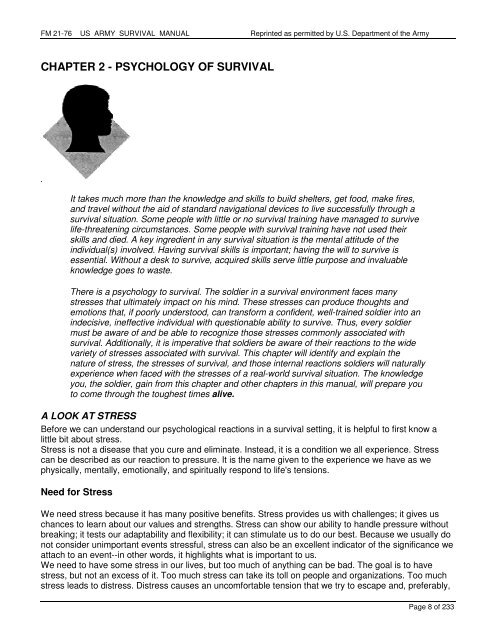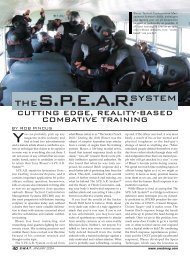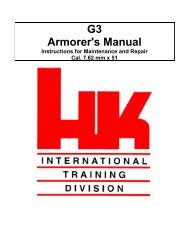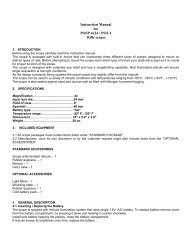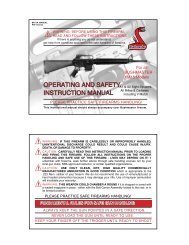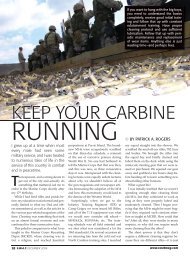FM 21-76 US ARMY SURVIVAL MANUAL - AR15.com
FM 21-76 US ARMY SURVIVAL MANUAL - AR15.com
FM 21-76 US ARMY SURVIVAL MANUAL - AR15.com
Create successful ePaper yourself
Turn your PDF publications into a flip-book with our unique Google optimized e-Paper software.
<strong>FM</strong> <strong>21</strong>-<strong>76</strong> <strong>US</strong> <strong>ARMY</strong> <strong>SURVIVAL</strong> <strong>MANUAL</strong> Reprinted as permitted by U.S. Department of the Army<br />
CHAPTER 2 - PSYCHOLOGY OF <strong>SURVIVAL</strong><br />
It takes much more than the knowledge and skills to build shelters, get food, make fires,<br />
and travel without the aid of standard navigational devices to live successfully through a<br />
survival situation. Some people with little or no survival training have managed to survive<br />
life-threatening circumstances. Some people with survival training have not used their<br />
skills and died. A key ingredient in any survival situation is the mental attitude of the<br />
individual(s) involved. Having survival skills is important; having the will to survive is<br />
essential. Without a desk to survive, acquired skills serve little purpose and invaluable<br />
knowledge goes to waste.<br />
There is a psychology to survival. The soldier in a survival environment faces many<br />
stresses that ultimately impact on his mind. These stresses can produce thoughts and<br />
emotions that, if poorly understood, can transform a confident, well-trained soldier into an<br />
indecisive, ineffective individual with questionable ability to survive. Thus, every soldier<br />
must be aware of and be able to recognize those stresses commonly associated with<br />
survival. Additionally, it is imperative that soldiers be aware of their reactions to the wide<br />
variety of stresses associated with survival. This chapter will identify and explain the<br />
nature of stress, the stresses of survival, and those internal reactions soldiers will naturally<br />
experience when faced with the stresses of a real-world survival situation. The knowledge<br />
you, the soldier, gain from this chapter and other chapters in this manual, will prepare you<br />
to come through the toughest times alive.<br />
A LOOK AT STRESS<br />
Before we can understand our psychological reactions in a survival setting, it is helpful to first know a<br />
little bit about stress.<br />
Stress is not a disease that you cure and eliminate. Instead, it is a condition we all experience. Stress<br />
can be described as our reaction to pressure. It is the name given to the experience we have as we<br />
physically, mentally, emotionally, and spiritually respond to life's tensions.<br />
Need for Stress<br />
We need stress because it has many positive benefits. Stress provides us with challenges; it gives us<br />
chances to learn about our values and strengths. Stress can show our ability to handle pressure without<br />
breaking; it tests our adaptability and flexibility; it can stimulate us to do our best. Because we usually do<br />
not consider unimportant events stressful, stress can also be an excellent indicator of the significance we<br />
attach to an event--in other words, it highlights what is important to us.<br />
We need to have some stress in our lives, but too much of anything can be bad. The goal is to have<br />
stress, but not an excess of it. Too much stress can take its toll on people and organizations. Too much<br />
stress leads to distress. Distress causes an uncomfortable tension that we try to escape and, preferably,<br />
Page 8 of 233


